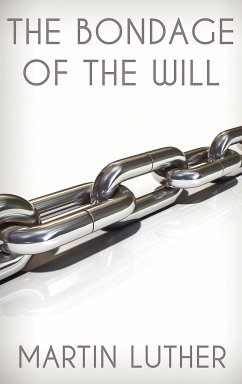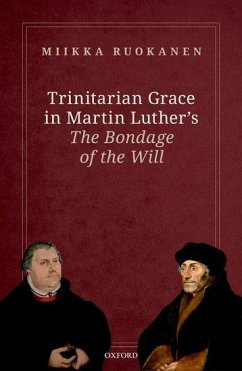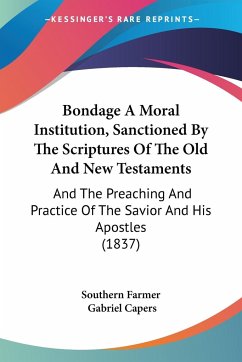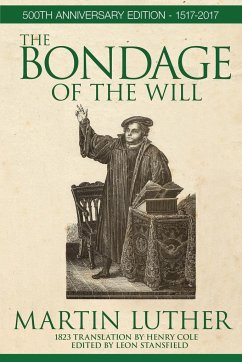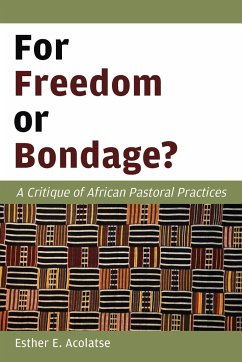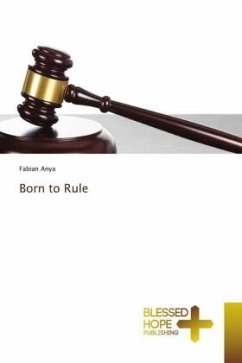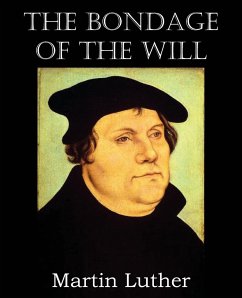
The Bondage of the Will
Versandkostenfrei!
Versandfertig in 1-2 Wochen
20,99 €
inkl. MwSt.

PAYBACK Punkte
10 °P sammeln!
THIS EXCELLENT WORK of that eminent servant of God, Martin Luther - one of the noble Reformers is acknowledged to be one of the greatest, if not the greatest of Luther's productions. Luther himself considered it his best publication. Although Luther used certain words that I should not employ, yet I have adhered faithfully to his own phraseology as translated by Cole. Luther speaks for himself. This book is most needful at the present day. The teachings of many so-called Protestants are more in accordance with the Dogmas of the Papists, or the ideas of Erasmus, than with the Principles of the ...
THIS EXCELLENT WORK of that eminent servant of God, Martin Luther - one of the noble Reformers is acknowledged to be one of the greatest, if not the greatest of Luther's productions. Luther himself considered it his best publication. Although Luther used certain words that I should not employ, yet I have adhered faithfully to his own phraseology as translated by Cole. Luther speaks for himself. This book is most needful at the present day. The teachings of many so-called Protestants are more in accordance with the Dogmas of the Papists, or the ideas of Erasmus, than with the Principles of the Reformers; they are more in harmony with the Canons and Decrees of the Council of Trent than with any Protestant or Reformed Confessions of Faith. If the Lord should be pleased to open the eyes and understanding of some of these so-called Protestants to whom I have referred - through the perusal of this work of the great Reformer - Luther - enabling them to see that they are at present believing and teaching awful delusions contrary to the Word of God, and the Protestant Reformed Religion, and causing them to return to The Old Paths, the labours of "THE SOVEREIGN GRACE UNION" will not have been in vain.






